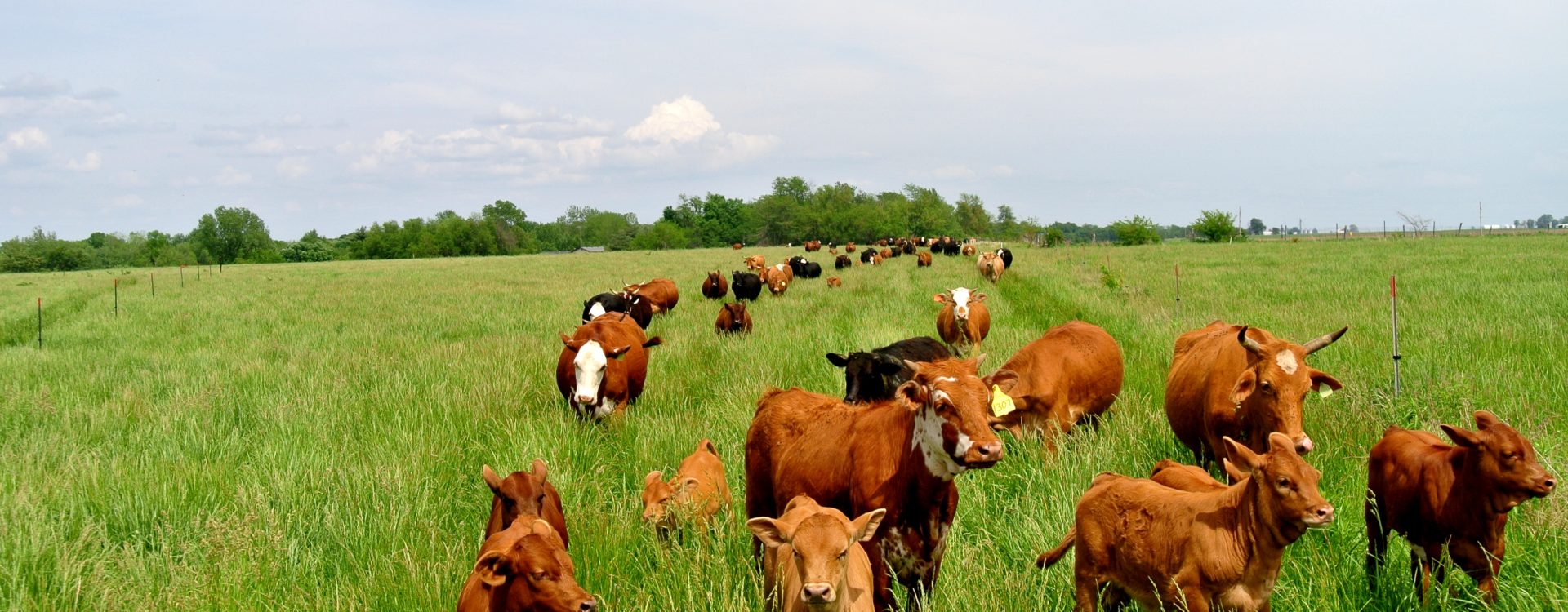Invasive species, Man and Nature
Written by Ron Freeman on April 19, 2014
As we look around our ranches and farms, its not to difficult to find invasive species. They appear to be more prevalant in the last couple of decades. But, it may be only that I am more observant now, than I was. I believe that as I have aged my power of observation has intensified. This may be a result of my focus.
For many years I concentrated on becoming a legitimate cattleman. I may have been concentrating on what I believed a good cattleman should be and not on what makes a good cattleman. There is a big difference between the two.
As an industry, we often overlook the latter. Like my former self, many have lost touch with what makes a good cattleman. Its not about hats, boots or horses. Its not about what section of the country you inhabit. Its not about the type of cattle you raise. But, it is about the connection you have achieved with your land and all that inhabit it. This is an understanding that cannot be gleaned from the classroom. This attachment must be formed by understanding how you interact with your land and the species that live and die there. The less you bring to the land, the tighter your connection will be. Its about understanding life cycles. Its about internalizing and implementing management strategies that benefit the whole. Its about managed co-exsistence, where management focuses on how you and your cattle can benefit from a strong and productive pasture eco-system. Its not simply about raising cattle in the conventional way. Its about giving back and not simply taking away. Its about what a pasture eco-system can teach you.
I began this discussion about invasive species. At the top of the list of invasive species is man. You may find disagreement with that statement. But, before you stop reading, think about what I just said. We have the power to work with our environment in a productive or non-productive way. Our presence can be beneficial or it can be destructive. In many instances, we imported both non-indigenious plant and animal life to create an environment that was pleasing to both our senses and our emotions. But sadly, this was done without fully understanding the consequences of our short sighted endeavors. These have greatly impacted the survivability of our eco-systems. Often times these introduced species stole the very food and water supply our indigenious species required to sustain life cycles. The list these would be to numerous to mention. But, one example would be the Autumn Olive and Russian Olive bushes. These introduced species have spread with deafening intensity, impacting our pastures and out timbers.
Somewhere in the last century we lost sight of or forgot what Nature could teach us. We forgot that Nature is perfect in it’s governing paradigms. Granted, it can be violent at times. Life and death can occur randomly. But, the outcome always has a positive affect on the strengthening of all inter-connected gene pools. The struggles that occur, occur for a reason. The strong survive and the weak perish. Nature doesn’t recognize bloodlines or pedigrees. Nature is focused on survival, on using what is at hand and prospering.
Man on the other hand, is continually adding to or taking away from the eco-system. He is continually seeking to establish a more productive plant and animal specie. But at what cost ? How has this desire and search for more of something affected and/or impacted our eco-systems?
Man’s desire to control and manipulate our ranch and farm environments has had, if one looks closely enough, a somewhat negative impact. But, to acquire a better understanding of the affects and the impact, one must look at the pasture eco-system with a multi-specie focus.
This would have been a complicated endevour if all were still raising livestock in a conventional management scenario. But, many have opted to experiment with unconventional techniques that seek to restore pasture eco-systems to a more natural or organic state. These techniques and strategies incorporate the reoccurring paradigms found in Nature itself. We as cattlemen don’t need to reinvent anything. We simply ned to follow a management plan that has existed for centuries. By allowing ourselves to learn from Nature, we can begin on the road to eco-system recovery and specie productivity.
It is never to late to reverse the trend. On many ranches and farms such as ours, cattlemen have proven that trends can be reversed and sensibility can return to cattle management.
Over a few short years of eliminating most of the inputs, we have seen a dramatic increase in not only the health of our cattle herd, but also the health of our land. The two are tied inexplicably together.
Nature is not what most think it is. It is more than a picture. It does not stand still. It is a fluid movement of life and death. It is ever changing, ever growing and never ending. It is a teacher, an educator for those that want to listen and those that want to learn. It has an answer to any question and a solution to any problem.
-By Ron Freeman
